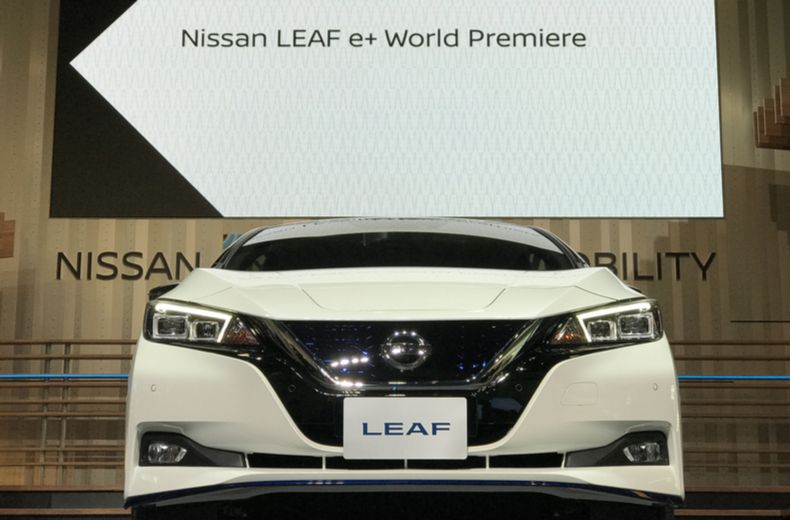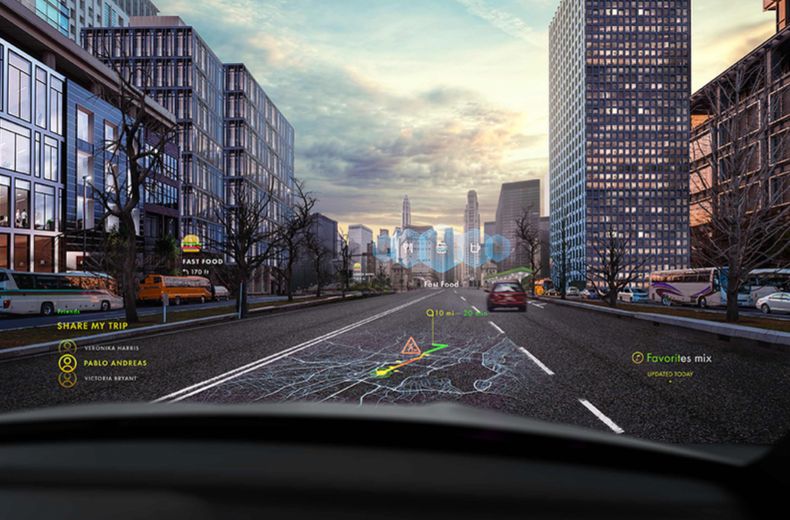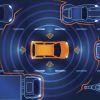At the beginning of the year, CES 2019 — the Consumer Electronic Show — showcased the best new car tech and gave us an idea of what to expect from the future of motoring.
To get you up to date, here’s our quick round-up of some of the best tech from the show and what it means for drivers today. Spoiler warning: no flying cars just yet...
Guide contents
- Personalised climate control
- Backseat virtual driver: VR experiences for passengers
- Virtual hazard mapping
- New electric vehicles and better batteries
- Autonomous car mobility
- Windscreen heads up displays
- New way to tow
- Car biometrics: fingerprint ignition and security
Personalised climate control
It can be difficult agreeing on an in-car temperature that keeps everyone happy, and it can also mean a lot of wasted energy.
To help fix this problem (that most of us didn’t even realise we had), Valeo has come up with personalised climate controls for every passenger.
The system scans a passenger’s face for gender and current body temperature and then sets door panel heaters, seat warmers and fans to provide targeted warmth (and cooling) for each individual.
The system’s designed for electric vehicles to limit battery drain, and if rolled out across all EVs it could one day put an end to road trip arguments about heaters and air-con once and for all…

RAC sale – up to 33% off*
• Roadside cover from £5.29 a month†
• We get to most breakdowns in 60 mins or less
• Our patrols fix 4/5 breakdowns on the spot

Backseat virtual driver: VR experiences for passengers
If you’ve ever tried to keep the kids occupied on a long car ride, you’d be forgiven for thinking you’d cracked it by giving them a fully-charged tablet and hoping that does the trick for the entire journey.
But now Holoride, a virtual reality system for rear passengers showcased by Audi, might put even the most technologically-minded parent to shame with its VR demo, which uses the car’s own dynamics to build the game’s virtual world.
This means that whatever happens in real life will happen in the game, so if the car goes around the corner the game will, too. Not only could this help tackle motion-sickness, it’ll give a whole new meaning to the term backseat driver.
Virtual hazard mapping
Built-in sat navs have been a great addition to cars, and for many motorists they’re the only way to get from A to B without going around the houses. But Nissan could soon take in-car mapping to a whole new level.
I2V, which stands for Invisible to Visible, could see cars use onboard sensors to provide a 360-degree map on everything in the vicinity of the vehicle, including nearby cars, pedestrians, cyclists and other hazards.
Nissan calls this piece of kit ‘omni-sensing technology’ and while you won’t find it in your Qashqai just yet, it could one day revolutionise the way motorists drive by letting them see around corners.
New electric vehicles and better batteries

The motoring world is moving rapidly towards an all-electric future, and the innovations on show at CES 2019 showed just how serious carmakers are about electrifying their product lines.
Nissan chose the show to unveil its new Leaf e-Plus, a car the Japanese brand hopes will build on the success of the Leaf, the UK’s top selling electric vehicle in the first quarter of 2018.
The Leaf e-Plus has a range of 226 miles (up from 151 miles), a figure that will go some way towards easing motorists’ fears over the UK’s under-developed electric charging infrastructure.
Expect the new Nissan to hit UK showrooms in Summer 2019.
Autonomous car mobility
In a world where lift-sharing and online deliveries are increasingly commonplace, Mercedes-Benz has come up with something it hopes will cater to both markets.
The Vision Urbanetic is an autonomous vehicle with four wheels and an electric motor that’s topped off with an interchangeable compartment — either a passenger module for up to 12 riders or a cargo module for goods.
The modules interchange in minutes, which means that the Vision Urbanetic could be delivering you groceries one day and taking you and your friends home after a night out the next.
Windscreen heads up displays

One of the most impressive innovations unveiled was WayRay’s new windscreen technology (above), that overlays a 3D animation onto what a driver can actually see in front of them.
It may make you feel like the star of the world’s most realistic video game, but this augmented reality head-up display could help make you a better driver, and keep you alert to hazards and dangers on the road ahead.
These windscreens could also completely transform the way learner drivers are taught the rules of the road, and its developers are confident it will appear on the production line sooner than we expect.
New way to tow
CES 2019 even had something for caravan owners with Valeo’s XtraVue system, which uses cameras to make trailers (and caravans) invisible so drivers can see the road behind them.
Using surprisingly simple technology, the system combines the images from two attached cameras to come up with one shot – which makes it look as if the trailer is transparent.
This could transform the way caravans and trailers are driven and make reversing while towing a whole lot easier.
Car biometrics: fingerprint ignition and security
Forever losing your car keys? Maybe you worry thieves could hotwire your car? Well the latest bit of tech from Hyundai should ease your fears.
A fingerprint scanner on the door allows you (and only you) to unlock the car, while another scanner on the ignition helps you start the engine, a move the Korean firm says makes it five times safer than normal car keys.
The great news? This is closer than you may think. Fingerprint car keys didn’t feature at CES 2019, they’re already available on the latest generation Hyundai Santa Fe, hitting Chinese markets soon.
What aspect of future motoring technology are you most anticipating? Leave us a comment below.
Did you know, you can get fined for moving out of the way of an ambulance?
Want more useful content like this sent straight to your inbox?


